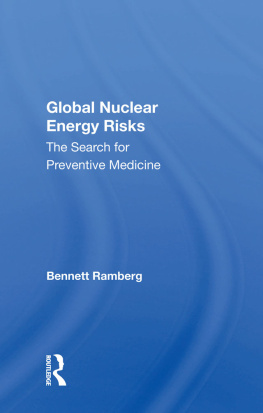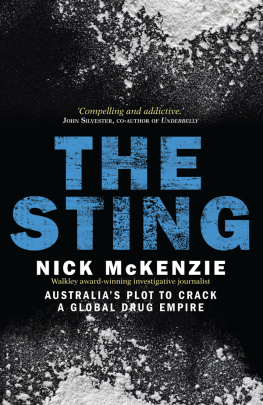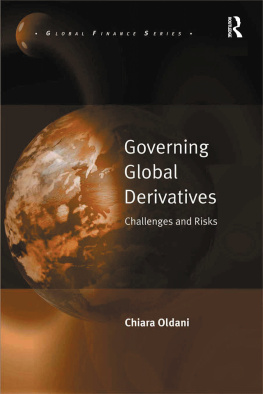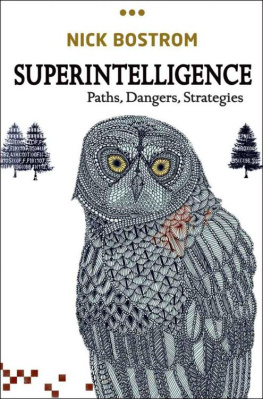Bostrom Nick - Global Catastrophic Risks
Here you can read online Bostrom Nick - Global Catastrophic Risks full text of the book (entire story) in english for free. Download pdf and epub, get meaning, cover and reviews about this ebook. year: 2008, genre: Politics. Description of the work, (preface) as well as reviews are available. Best literature library LitArk.com created for fans of good reading and offers a wide selection of genres:
Romance novel
Science fiction
Adventure
Detective
Science
History
Home and family
Prose
Art
Politics
Computer
Non-fiction
Religion
Business
Children
Humor
Choose a favorite category and find really read worthwhile books. Enjoy immersion in the world of imagination, feel the emotions of the characters or learn something new for yourself, make an fascinating discovery.

- Book:Global Catastrophic Risks
- Author:
- Genre:
- Year:2008
- Rating:5 / 5
- Favourites:Add to favourites
- Your mark:
- 100
- 1
- 2
- 3
- 4
- 5
Global Catastrophic Risks: summary, description and annotation
We offer to read an annotation, description, summary or preface (depends on what the author of the book "Global Catastrophic Risks" wrote himself). If you haven't found the necessary information about the book — write in the comments, we will try to find it.
Global Catastrophic Risks — read online for free the complete book (whole text) full work
Below is the text of the book, divided by pages. System saving the place of the last page read, allows you to conveniently read the book "Global Catastrophic Risks" online for free, without having to search again every time where you left off. Put a bookmark, and you can go to the page where you finished reading at any time.
Font size:
Interval:
Bookmark:
It is our pleasure to acknowledge the many people and institutions who have in one way or another contributed to the completion of this book. Our home institutions the Future of Humanity Institute in the James Martin 21st Century School at Oxford University and the Astronomical Observatory of Belgrade have offered environments conducive to our cross-disciplinary undertaking. Milan wishes to acknowledge the Oxford Colleges Hospitality Scheme and the Open Society Foundation of Belgrade for a pleasant time in Oxford back in 2004 during which this book project was conceived. Nick wishes to thank especially James Martin and Lou Salkind for their visionary support.
Physicist and polymath Cosma R. Shalizi gave an entire draft of the book a close, erudite and immensely helpful critical reading. We owe a great debt of gratitude to Alison Jones, Jessica Churchman and Dewi Jackson of Oxford University Press, who took so much interest in the project and helped shepherd it across a range of time scales. We are also appreciative of the scientific assistance by Peter Taylor and Rafaela Hillerbrand and for administrative support by Rachel Woodcock, Miriam Wood and Jo Armitage.
We thank John Leslie for stimulating our interest in extreme risk many years ago. We thank Mathew Gaverick, Julian Savulescu, Steve Rayner, Irena Dikli, Slobodan Popovi, Tanja Beri, KenD. Olum, Istvan Aranyosi, Max Tegmark, Vesna Miloevi, Toby Ord, Anders Sandberg, Bill Joy, Maja Bulatovi, Alan Robertson, James Hughes, Robert J. Bradbury, Zoran ivkovi, Michael Vasser, Zoran Kneevi, Ivana Dragievi, and Susan Rogers for pleasant and useful discussions of issues relevant to this book. Despairing of producing an exhaustive acknowledgement of even our most direct and immediate intellectual debts which extend beyond science into the humanities and even music, literature, and art we humbly apologize to all whom we have egregiously neglected.
Finally, let all the faults and shortcomings of this study be an impetus for others to do better. We thank in advance those who take up this challenge.
Gary Ackerman is research director of the National Consortium for the Study of Terrorism and Responses to Terrorism (START), a US Department of Homeland Security Center of Excellence. Ackerman concurrently also holds the post of director of the Center for Terrorism and Intelligence Studies, a private research and analysis institute. Before taking up his current positions, Ackerman was director of the Weapons of Mass Destruction Terrorism Research Program at the Center for Nonproliferation Studies in Monterey, California, and earlier he served as the chief of operations of the South Africa-based African-Asian Society. He received his M.A. in International Relations (Strategic Studies Terrorism) from Yale University and his Bachelors (Law, Mathematics, International Relations) and Honors (International Relations) degrees from the University of the Witwatersrand in Johannes burg, South Africa. Originally hailing from South Africa, Ackerman possesses an eclectic academic background, including past studies in the fields of mathematics, history, law, and international relations, and has won numerous academic awards. His research encompasses various areas relating to terrorism and counterterrorism, including terrorist threat assessment, terrorist technologies and motivations, terrorism involving chemical, biological, radiological, and nuclear (CBRN) weapons, terrorist financing, environmental extremism, and the modelling and simulation of terrorist behaviour.
Fred Adams was born in Redwood City and received his undergraduate training in mathematics and physics from Iowa State University in 1983 and his Ph.D. in Physics from the University of California, Berkeley, in 1988. For his Ph.D. dissertation research, he received the Robert J. Trumpler Award from the Astronomical Society of the Pacific. After a post-doctoral fellowship at the Harvard-Smithsonian Center for Astrophysics, he joined the faculty in the Physics Department at the University of Michigan in 1991. Adams is the recipient of the Helen B. Warner Prize from the American Astronomical Society and the National Science Foundation Young Investigator Award. He has also been awarded both the Excellence in Education Award and the Excellence in Research Award from the College of Literature, Arts, and Sciences (at Michigan). In 2002, he was given The Faculty Recognition Award from the University of Michigan. Adams works in the general area of theoretical astrophysics with a focus on star formation and cosmology. He is internationally recognized for his work on the radiative signature of the star formation process, the dynamics of circum stellar disks, and the physics of molecular clouds. His recent work in star formation includes the development of a theory for the initial mass function for forming stars and studies of extra-solar planetary systems. In cosmology, he has studied many aspects of the inflationary universe, cosmological phase transitions, magnetic monopoles, cosmic rays, anti-matter, and the nature of cosmic background radiation fields. His work in cosmology includes a treatise on the long-term fate and evolution of the universe and its constituent astrophysical objects.
Myles R. Allen is joint head of the Climate Dynamics Group, Atmospheric, Oceanic, and Planetary Physics, Department of Physics, University of Oxford. His research focuses on the attribution of causes of recent climate change, particularly changing risks of extreme weather, and assessing what these changes mean for the future. He has worked at the Energy Unit of the United Nations Environment Programme, the Rutherford Appleton Laboratory, and the Massachusetts Institute of Technology. He has contributed to the Intergovernmental Panel on Climate Change as lead author on detection of change and attribution of causes for the 2001 Assessment, and as review editor on global climate projections for the 2007 Assessment. He is principal investigator of the climateprediction.net project, also known as the BBC Climate Change Experiment, using public resource distributed computing for climate change modelling. He is married to Professor Irene Tracey and has three children.
Nick Bostrom is director of the Future of Humanity Institute at Oxford University. He previously taught in the Faculty of Philosophy and in the Institute for Social and Policy Studies at Yale University. He has a background in physics and computational neuroscience as well as philosophy. Bostroms research covers the foundations of probability theory, scientific methodology, and risk analysis, and he is one of the worlds leading experts on ethical issues related to human enhancement and emerging technologies such as artificial intelligence and nanotechnology. He has published some 100 papers and articles, including papers in Nature, Mind, Journal of Philosophy, Bioethics, Journal of Medical Ethics, Astrophysics &Space Science, one monograph, Anthropic Bias (Routledge, New York, 2002), and two edited volumes with Oxford University Press. One of his papers, written in 2001, introduced the concept of an existential risk. His writings have been translated into more than 14 languages. Bostrom has worked briefly as an expert consultant for the European Commission in Brussels and for the Central Intelligence Agency in Washington, DC. He is also frequently consulted as a commentator by the media. Preprints of many of his papers can be found on his website, http://www.nickbostrom.com .
Bryan Caplan received his Ph.D. in Economics in 1997 from Princeton University, and is now an associate professor of Economics at George Mason University. Most of his work questions the prevailing academic assumption of voter rationality; contrary to many economists and political scientists, mistaken voter beliefs do not harmlessly balance each other out. Caplans research has appeared in the
Font size:
Interval:
Bookmark:
Similar books «Global Catastrophic Risks»
Look at similar books to Global Catastrophic Risks. We have selected literature similar in name and meaning in the hope of providing readers with more options to find new, interesting, not yet read works.
Discussion, reviews of the book Global Catastrophic Risks and just readers' own opinions. Leave your comments, write what you think about the work, its meaning or the main characters. Specify what exactly you liked and what you didn't like, and why you think so.







